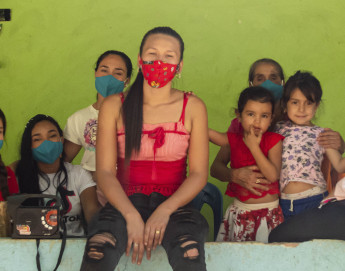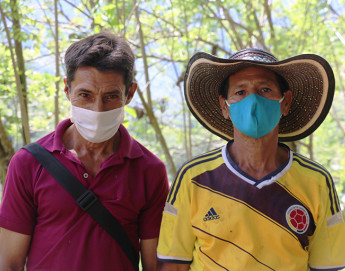
Prisons, migration and use of force

Prisons
These restrictions have also negatively affected the quality of certain basic services for detainees, such as food, health care and judicial guarantees.
In the midst of the pandemic, we reiterate our commitment through joint efforts with the National Penitentiary and Prison Institute (INPEC) and the Colombian Red Cross, to restore contact between family members through video calls.
Female detainees fared worse than their male counterparts when it came to maintaining contact with family members, especially their children, during this time. We stress the importance of considering alternatives to imprisonment so that this measure is only resorted to when necessary. We also call on supervisory bodies and enforcement judges to resume in-person work in prisons.
In addition, the closure of the detention facilities had a direct impact on the increase in the overcrowding levels in the temporary detention centers of the country, where the adequate living conditions for prolonged stays or for so many people are not met.
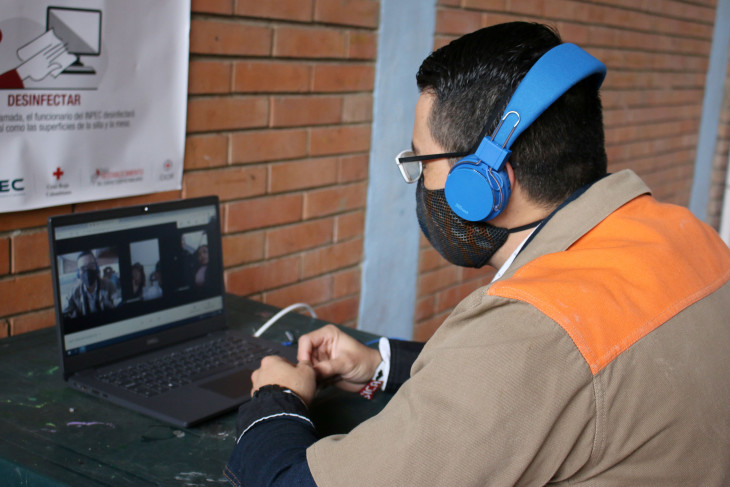
In 2021, we facilitated 14,678 call services enabling detainees to contact their families. Photo: Juan Duque / ICRC Colombia.
Migration
The migrant population with a vocation to stay also settles in departments affected by armed conflicts and violence, which exposes them to danger due to their unfamiliarity with the context, but also due to rejection, stigmatization and xenophobia.
In addition, they have to negotiate various institutional barriers to access the care, assistance and reparations available to victims of armed conflict, on account of their irregular status.
Added to this are various institutional barriers that must be overcome in order to be cared for, assisted and receive reparations as victims of armed conflicts, always poorly justified due to their irregular status.
Meanwhile, problematic scenes have unfolded on the Pacific coast and in the Darién Gap, involving migrants from overseas making long, exhausting and sometimes life-threatening journeys through dense jungle and other treacherous terrains.
The ICRC welcomes the steps taken by the government to address the migrant crisis in Colombia, such as passing a temporary protection statute, which will allow migrants to seek new opportunities and participate in society and the economy.
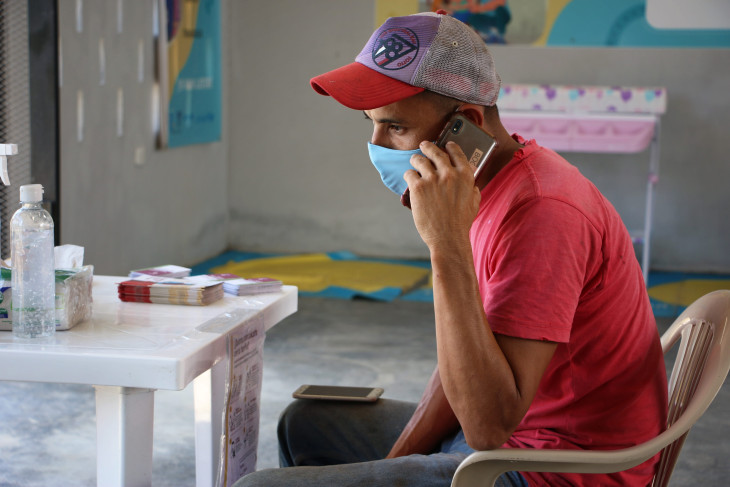
In 2021, 51,082 migrants and host communities received support to optimize their living conditions. Photo: Juan Duque / ICRC Colombia.
Use of force
At the global level, we saw increased levels of social unrest in 2021, and thousands of protesters took to the streets for different reasons. Colombia was no exception. Maintenance of public order was a constant challenge for state security forces in both urban and rural areas, testing their ability to respond in ways that respected international rules and standards on the use of force.
Allegations of a disproportionate use of force by state officials require a comprehensive response by the state. This should include improvements to operational doctrine, training, and monitoring and control mechanisms relating to the use of force by law enforcement officers.
For the ICRC it is important to continue engaging in frank and constructive dialogue with decision-makers in charge of this response, protection of the population and maintenance of public order. As part of this dialogue, we will continue to share recommendations on respecting human rights and humanitarian principles and stand ready to share our perspective on this issue.
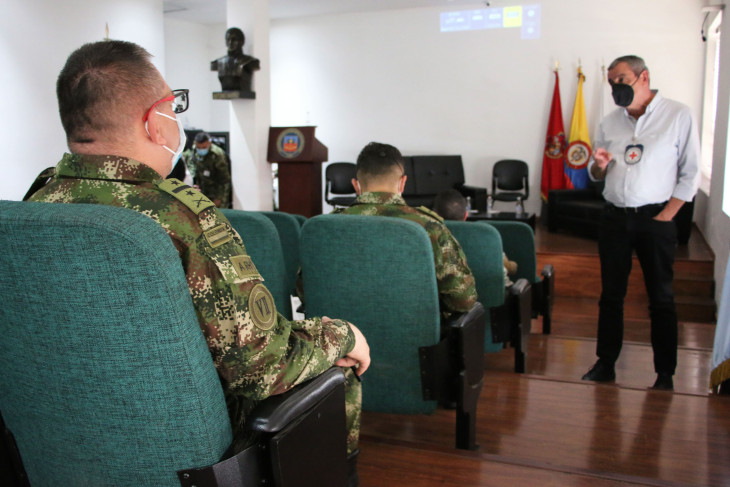
5,505 members of state security forces and the authorities were trained in international standards on the use of force, international humanitarian law and other humanitarian rules. Photo: Juan Duque / ICRC Colombia.
About 'Humanitarian Challenges 2022'
- War should not remain the status quo in Colombia.
- Head of Delegation Editorial: listening to the voices of victims.
- Explosive hazards in Colombia: a latent threat.
- Missing persons: a humanitarian tragedy that must not be forgotten.
- Health care in danger.
- Confidential dialogue with weapon bearers.
- Calls to action from the ICRC.

